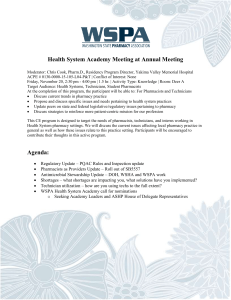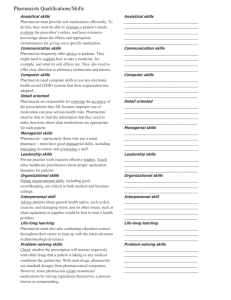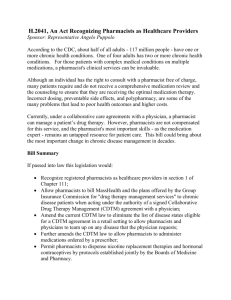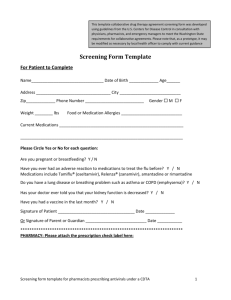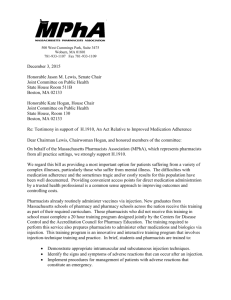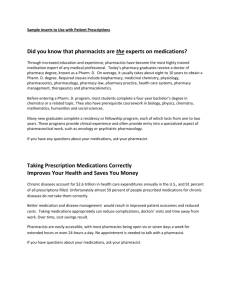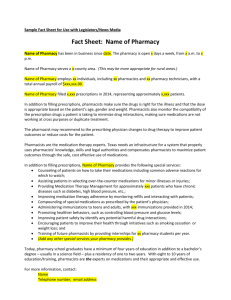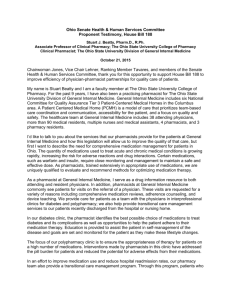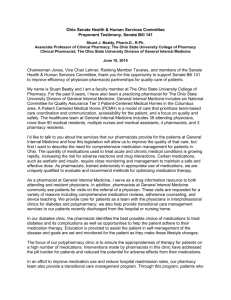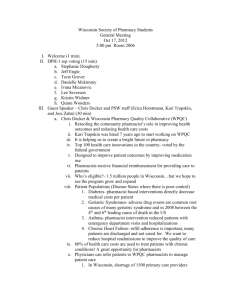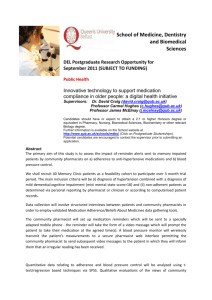Pharmacy Awareness Week 2012: Your pharmacist
advertisement
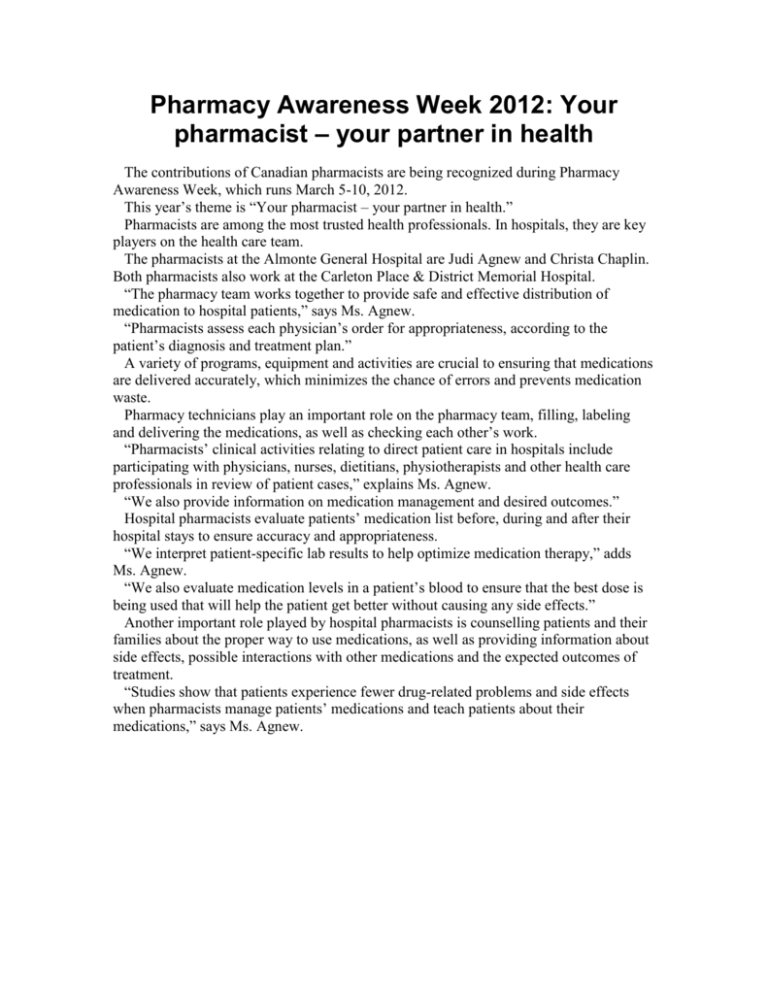
Pharmacy Awareness Week 2012: Your pharmacist – your partner in health The contributions of Canadian pharmacists are being recognized during Pharmacy Awareness Week, which runs March 5-10, 2012. This year’s theme is “Your pharmacist – your partner in health.” Pharmacists are among the most trusted health professionals. In hospitals, they are key players on the health care team. The pharmacists at the Almonte General Hospital are Judi Agnew and Christa Chaplin. Both pharmacists also work at the Carleton Place & District Memorial Hospital. “The pharmacy team works together to provide safe and effective distribution of medication to hospital patients,” says Ms. Agnew. “Pharmacists assess each physician’s order for appropriateness, according to the patient’s diagnosis and treatment plan.” A variety of programs, equipment and activities are crucial to ensuring that medications are delivered accurately, which minimizes the chance of errors and prevents medication waste. Pharmacy technicians play an important role on the pharmacy team, filling, labeling and delivering the medications, as well as checking each other’s work. “Pharmacists’ clinical activities relating to direct patient care in hospitals include participating with physicians, nurses, dietitians, physiotherapists and other health care professionals in review of patient cases,” explains Ms. Agnew. “We also provide information on medication management and desired outcomes.” Hospital pharmacists evaluate patients’ medication list before, during and after their hospital stays to ensure accuracy and appropriateness. “We interpret patient-specific lab results to help optimize medication therapy,” adds Ms. Agnew. “We also evaluate medication levels in a patient’s blood to ensure that the best dose is being used that will help the patient get better without causing any side effects.” Another important role played by hospital pharmacists is counselling patients and their families about the proper way to use medications, as well as providing information about side effects, possible interactions with other medications and the expected outcomes of treatment. “Studies show that patients experience fewer drug-related problems and side effects when pharmacists manage patients’ medications and teach patients about their medications,” says Ms. Agnew.

